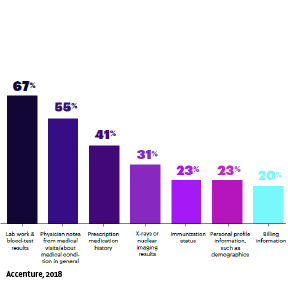TriCore’s Journey to Offer Direct to Consumer Testing
David G. Grenache, PhD, D(ABCC)
December 9, 2024
TriCore will launch an exciting new service called Direct to Consumer Testing. This article gives you a framework about this new service, where I explore the history, growth and the unique challenges and opportunities we tackled along the way.
First, What are Direct to Consumer (DTC) Tests?
They are tests that are marketed directly to consumers. People can order the tests themselves, get the results sent back to them directly, and a healthcare provider is not involved. DTC has grown considerably, and the global market is predicted to grow from $1.4 billion in 2020 to $2.6 billion in 2025.
Regulations associated with this type of testing, include:
• Laboratories that perform DTC testing are regulated just like all other laboratories.
• Most states either allow consumers to order tests or are silent on the issue, including New Mexico. There are 8 states that do not allow consumers to order their own tests.
There are three different types of DTC testing:
• Over the Counter Tests are purchased in retail outlets, like home pregnancy, glucose monitoring, and HIV tests. They are relatively easy to use and can be performed at home. The manufacturers of these tests must demonstrate that untrained lay persons can perform the tests and get good results.
• Direct to Consumer Tests are performed in a hospital or commercial laboratory. The samples can be obtained by a phlebotomist or self-collected, which is also known as direct access. DTC tests range substantially and can be anything from diabetes management tests to adults wellness profiles.
• Recreational Tests that are not marketed as a diagnostic lab test. Some of these tests include 23andMe and AncestoryDNA, which are genetic tests for health and ancestry.
TriCore will offer Direct to Consumer Tests, with samples collected at a TriCore Patient Care Center.
 What is driving the rapid increase in consumer access to laboratory tests? When consumers were asked the primary reasons, the two most common were:
What is driving the rapid increase in consumer access to laboratory tests? When consumers were asked the primary reasons, the two most common were:
- Access to a portal to get their lab test results directly.
- Receiving physician notes about their medical visits and medical conditions.
The Pros & Cons of DTC Testing
DTC testing offers several advantages, empowering individuals to gain autonomous insights into their health without needing prior approval from healthcare providers. This approach can improve healthcare access, as individuals can self-order tests, which may serve as a first step toward initiating clinical care and connecting patients with the appropriate healthcare resources. Additionally, DTC testing provides cost transparency, helping consumers understand the financial aspects of their health decisions. The convenience and accessibility of DTC testing can particularly benefit underserved populations, such as those without health insurance, individuals with challenging work schedules, or those facing social stigmas or language barriers.
However, DTC testing also comes with potential drawbacks. One concern is the risk of unnecessary testing, which can lead to waste and may cause confusion for consumers who lack guidance on what tests are necessary. Excessive testing can also contribute to a phenomenon known as the “worried well,” where healthy individuals become overly concerned with inconsequential results, increasing healthcare costs without significant health benefits. Moreover, DTC testing may lack professional guidance on selecting the right tests and interpreting results, leaving consumers without the necessary support to make informed decisions. Finally, the marketing of some DTC tests raises concerns about quality and clinical value, as some tests may not have sufficient evidence to support their effectiveness.
We Have Been Here Before
In 1978, when home pregnancy tests first became available – for the first time ever – it gave women a sense of independence because they could perform a pregnancy test at home. There were concerns that women had a lack of understanding the test limitations, may not understand how to interpret the results or the test would cause undue anxiety.
 Here are some concerns that were expressed in the press at the time:
Here are some concerns that were expressed in the press at the time:
- What if a senator’s daughter, unmarried, found she was pregnant and jumped off a bridge?
- Women will neglect prenatal care.
- Women use the products ‘in a state of emotional anxiety’ that prevents them from following the simplest instructions.
When we read the above quotes and concerns, some seem unfounded or absurd. However, some of these same concerns are shared today in regard to DTC.
In 2016, The New York Times published an article “Direct-to-Consumer Lab Tests, No Doctor Visit Required” and interviewed consumers who used DTC services. Here are some of the reasons for popularity with DTC testing:
- Allowed them to be proactive about their health.
- Believed it had a huge improvement in their quality of life.
- It was money well spent.
Challenges and Solutions with Offering DTC Testing
Pre-Analytics – What tests and panels will be offered and how will we communicate the process for collection?
TriCore spent considerable time determining the 30+ tests and panels that will be offered to consumers. The tests chosen already have an established clinical validity and utility. Instructions outlining any special preparation are provided on the portal when consumers order the tests. At the same time, they can schedule an appointment at a Patient Care Center for sample collection.
Analytics – How will the tests be processed?
Since the tests will be performed and processed by TriCore’s experienced staff at the Core Lab, the challenges such as sample processing, integrity and test validation have been mitigated. The samples will go through the same integrity checks that are used for clinical samples.
Post Analytics – How will the results be delivered and interpreted?
The test results will be delivered to the MyTriCore Patient Portal along with educational resources on how to interpret the results. If consumers have concerns, they can contact TriCore for additional information. For more specific questions about their health, it’s best for patients to contact their provider.

Why is TriCore Offering Direct to Consumer Testing?
A few years ago, TriCore conducted an informal survey at some of its Patient Care Centers. A total of 753 adults were asked if they were likely to use a DTC service and 52% were highly or likely to use the service.
TriCore has the infrastructure to offer this service. Patients can order their tests and get the results from the MyTriCore Patient Portal. Also, TriCore has established patients with numerous Patient Care Centers.
Finally, DTC Testing aligns with our mission: through excellence in laboratory science, education and research, we improve the health of our community. This service can help deliver and improve the health of our communities.